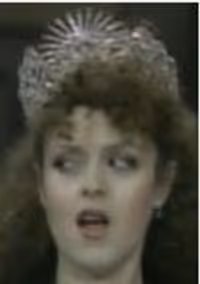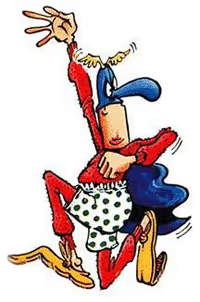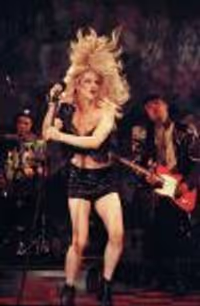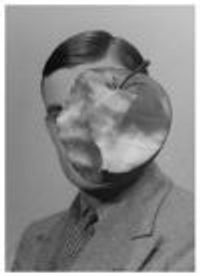FOLLIES- National Theatre Live
JBC3
Broadway Star Joined: 4/9/17
#125FOLLIES- National Theatre Live
Posted: 12/16/17 at 2:54pm
GeorgeandDot said: "
Also, about Hattie, I think I've just been spoiled by Jayne Houdyshell's great performance in the recent revival, but I really didn't care for this actresses' interpretation at all."
Agree 100%. This Hattie really did hit the vocals well each time I saw it live (and the audience ate it up), but did not get the humor out of the song that Houdyshell did.
Updated On: 12/16/17 at 02:54 PM
#126FOLLIES- National Theatre Live
Posted: 12/16/17 at 5:09pm
Jayne Houdyshell was such a great little highlight in the 2011 production - at the first preview when she came on stage with her quirky facial expressions you knew things were going to be ok (in fact this feeling sunk in a few times - when you walked into the theatre for the first time and saw the drapes trying to make the theatre seem old; when Bernadette walked in with her new dress etc.). So glad Jayne was nominated for a Tony Award for her performance.
MVintheheartland
Featured Actor Joined: 11/19/13
#127FOLLIES- National Theatre Live
Posted: 12/17/17 at 9:02pm
Interesting to read everyone's responses to the show. I personally was a little disappointed, considering the hype regarding how close it was to the "original show" (which I am really tired of hearing about). I can't help but wonder if the memories of the original 1971 show have become embellished over time. But anyways:
1. Imelda Staunton was absolutely flabbergasting. She was so good, and took over the stage whenever she appeared. I had seen Bernadette a few years ago, and thought she was totally miscast. Imelda, to me, was perfect as slightly addled Phoenix housewife with some dreams and delusions.
2. I thought there were too many ghosts and younger versions of the characters, making the staging busy and sometimes hard to follow.
3. Music was fabulous. I didn't notice the music overpowering the singers, but that is not what I general pay attention to.
4. The actress who played Phyllis did not impress me at first, but really came into her own. In general, I thought the two female leads nailed it.
5. The "breakdowns" of the leads as the show went on just didn't do it for me. I kept thinking, "Oh come on! Suck it up and move on!" But that's the practical Midwestern girl in me.
6. Maybe I would have liked it more if live, I know a huge show like that when filmed can't truly reflect it's greatness. Interestingly, I loved the film of "Falsettos", which I also recently saw, and have watched over and over again. I don't really have any emotional connection to this production.
#128FOLLIES- National Theatre Live
Posted: 12/18/17 at 10:25pm
Gizmo6 said: "Sweetie I know you have a terrible education system in America but surely you can read.
I found it to be is my opinion of something i saw.
Secondly, having multiple conversations on the stage was jarring. End of. I was in the third row. I heard it all. People kept looking to see were people in the audience around talking this brought the audience, the ones in the theatre and in the front rows, out of the world of the play.
You need to learn to read the lines in front not in between in your head. I said it jarred, it was striking, it disturbed, it BROKE THE FORTH WALL! And i finished with how it ADDED, that is contributed/enhanced. the alienation effect the final follies segment BUILT, that is established or intensified, at the end.
Ok Sweetie? Ask Santa for a dictionary."
Darling, my high school was ranked in the top ten
in the country while I was in attendance and I did
my undergraduate work at an Ivy League college.
Whatever you may think of American primary
education, the best students in the world still come
here for higher education.
The department where I did my graduate studies
and where I taught for 10 years was just ranked
#1 in the world among theater departments at
public colleges. So I'll happily stack my educa-
tion up against someone who gets confused
by overlapping dialogue.
(Perhaps you should try a few Caryl Churchill
plays and then visit FOLLIES again.) Myself,
I didn't find FOLLIES confusing when I was 17.
Your understanding of Brecht is one taught
in a bad Intro to Theater class. Although he
certainly wanted to inspire a critical attitude
among spectators, the "V-effects" (some-
times translated as "A-effects" in English) of
which Brecht wrote had nothing to do with
discouraging emotion. On the contrary,
Brecht writes that he wants theater spectators
to feel like spectators at a boxing match, ex-
citedly choosing sides and rooting for their
favorites.
"Estrangement" (also translated as "alienation"
but I find the latter confuses English speakers)
is a process first identified not by Brecht but by
the Romantics. It is a three-part process: (1) the
object (character, situation, etc.) on stage looks
familiar; (2) something about the production
makes the object look strange; (3) the spectator
comes to see the object in a new light. (Think
of Poe's "The Raven", in which a common crow's
cousin becomes the embodiment of mystery.)
Thus, there are multiple estrangements in any
Brechtian production. And in FOLLIES. As I
mentioned in my earlier post, Brecht found
that unless he kept re-estranging the objects
on stage, such objects became "unstrange" in
the minds of spectators. Yet another reason
that we know Brecht was not talking about
merely denying the audience ONE emotional
detachment from the stage.
No need to apologize to me, baby. Many,
many, many students get that same, bad
lecture on Brecht and "distancing the
audience". Bottom line: Brecht wants the
spectator to feel his/her OWN feelings
rather than pretending s/he can feel,
through empathy, what a character feels.
And that's what FOLLIES does, as well.
You were on the right track, honey bunch,
you were just weighed down by that lousy
lecture you heard on Brecht.
#129FOLLIES- National Theatre Live
Posted: 12/19/17 at 11:00am
Are you two finished?
#130FOLLIES- National Theatre Live
Posted: 12/19/17 at 6:49pm
Mister Matt said: "Are you two finished?
God I hope not. This is entertaining haha
Gizmo6
Broadway Star Joined: 6/16/17
#131FOLLIES- National Theatre Live
Posted: 12/20/17 at 2:53pm
Aww Sweetie
I should of guessed with your copy and paste skills, my undergraduates do that too.
Thankfully my Mphil and Doctorate negates the need to plagiarize. Original content and contribution to the academy and all that jazz.
But you keep keepin’ On, sweetie, you may graduate one day,
#132FOLLIES- National Theatre Live
Posted: 12/20/17 at 3:29pm
Imagine having an MPhil and Doctorate and still not being able to concede a lost fight because you have lost you ability to learn new things.
#133FOLLIES- National Theatre Live
Posted: 12/20/17 at 3:44pm
I finally saw the screening last night and think it's as fine as Follies as we're liable to see.
But seeing it really allowed me to put my finger on a major issue I have with the piece, particularly today: the fact that I cannot read Sally as being anything other than mentally ill, based on her actions in the show and the information we get from Buddy regarding her behavior at home (with clear manic and depressive episodes as well as erratic and irrational behavior). However, the show treats her problems as equal or comparable to Phyllis, Buddy, and Ben's personal failings. I think this is pretty much just due to the understanding of mental illness in the late 60s and early 70s, when Follies was being written (this also makes whatever mental illness Sally suffers from lack specificity and just become a general sort of crazy). But it throws everything off-balance to me. Phyllis, Buddy, and Ben are capable of a change or realization that Sally is not and this isn't something that show is able to deal with.
#134FOLLIES- National Theatre Live
Posted: 12/20/17 at 6:58pm
Valentina3 said: "Imagine having an MPhil and Doctorate and still not being able to concede a lost fight because you have lost you ability to learn new things."
Thank you, Valentina. It's particularly sad because I haven't
said anything Brecht didn't say himself by the end of his
career. Not just with Brecht, but with Stanislavski and Freud,
college professors have a bad tendency to take an early work
(always read only in translation) and treat it as if the genius
who wrote it never had another thought in his life. Students
encourage this because the early works of most theorists
are easy to summarize and memorize for the final exam.
Ultimately, one has to stop rereading Willett's translations of
early Brecht and skip to the back of the book to A Short
Organum. It helps to have a thorough knowledge of Aristotle's
Poetics, which Brecht had obviously reread by the mid-1950s.
#135FOLLIES- National Theatre Live
Posted: 12/20/17 at 7:08pm
Gizmo6 said: "Aww Sweetie
I should of guessed with your copy and paste skills, my undergraduates do that too.
Thankfully my Mphil and Doctorate negates the need to plagiarize. Original content and contribution to the academy and all that jazz.
But you keep keepin’ On, sweetie, you may graduate one day,"
I'll see your doctorate and raise your Mphil with an MFA
and Cphil.
If I'm guilty of cut-and-paste, a man of your claimed
erudition ought to be able to cite the source of my
borrowings.
***
As long as we have brought Brecht into the discussion,
we should note that Sondheim SAYS he hates Brecht
and avoids emulating him in all cases. Me thinks Mr.
Sondheim doth protest too much, as nobody has used
"Brechtian" devices (i.e., elements he made popular,
but didn't invent, as Herr Piscator will gladly tell you)
to greater effect in the American musical theater.
I suppose Sondheim is focussed on Brecht's alleged
polemics, but Brecht himself learned early on that
theater wasn't a good medium for teaching political
doctrine or for inspiring the masses to mount the
battlements. This is why Brecht concentrated on
provoking critical thinking rather than pushing
political dogma--something *I* would argue Sondheim
does as well.
#136FOLLIES- National Theatre Live
Posted: 12/20/17 at 7:18pm
Good point about Sally's diagnosis, Kad.
Perhaps she suffers from GTM--
Generalized Theatrical Madness--
a very common mental disorder
dating at least from Socrates.
Let me ask you this, just for purposes
of discussion: would you say the same
of Lady Macbeth? She predates anti-
depressants, obviously, but is she
susceptible to a well-defined modern
mental disorder, or do we accept her
madness as a sort of theatrical
consequence of her folly?
#137FOLLIES- National Theatre Live
Posted: 12/20/17 at 9:17pm
Gizmo6 said: "I should of guessed with your copy and paste skills, my undergraduates do that too."
Really not trying to jump into this, but you really teach undergrads with that grammar?
#138FOLLIES- National Theatre Live
Posted: 12/21/17 at 10:50am
GavestonPS said: "Good point about Sally's diagnosis, Kad.
Perhaps she suffers from GTM--
GeneralizedTheatrical Madness--
a very commonmental disorder
dating at least fromSocrates.
Let me ask you this, just for purposes
of discussion: would you say the same
of Lady Macbeth? She predates anti-
depressants, obviously, but is she
susceptible to a well-defined modern
mental disorder, or do we accept her
madness as a sort of theatrical
consequence of her folly?"
This is something I immediately thought about, but more specifically with the works of Tennessee Williams (simply for the sake of a reference point closer in time to Follies). Blanche DuBois is clearly mentally ill, but operates in a theatrical world in which that can be generalized to sort of grand, poetic, and metaphorical Madness. Same is true with Lady Macbeth or Agave or Ophelia or any number of others.
I don't find Follies to operate in such a theatrical world, despite its obvious heightening. Even with poetic moments like "Too Many Mornings" or the hard-to-define Loveland sequence, the work is primarily rooted in a far more realistic place for Sally to be suffering from Madness. The fact that the book even goes out of the way to describe specific symptomatic behavior differentiates Sally from, say, Blanche DuBois.
#139FOLLIES- National Theatre Live
Posted: 12/21/17 at 9:27pm
Kad, I later thought of Blanche as well. She's a much
better example than Lady Macbeth, if only because
Blanche lives in a world with psychoanalysis.
But I can't agree that FOLLIES is "more realistic" or
more specific about Sally than STREETCAR is a-
bout Blanche. The compulsory, self-destructive prom-
iscuity, the compulsive bathing, the hysterical out-
breaks, thinking she's going to somehow marry Mitch
and still avoid being seen in normal lighting, etc., are
all symptoms of something, but what?
Surely Sally isn't the first neurotic who simply refuses
to get help or even accept anything is wrong with her.
Her Follies number is even called "Losing My Mind".
Of course, Phyllis diagnoses herself with a type of
theatrical MPD. Perhaps madness is just a metaphor
in Loveland.
#140FOLLIES- National Theatre Live
Posted: 12/21/17 at 9:34pm
BroadwayConcierge said: "Gizmo6 said: "I should of guessed with your copy and paste skills, my undergraduates do that too."
Really not trying to jump into this, but you really teach undergrads with that grammar?"
The grammar isn't mine, but I want to apologize to
everyone here for allowing myself to be drawn into
a battle of credentials. I really don't care much about
such things; I certainly don't think a degree confers
magical authority on a bad argument.
I'm very sorry I took the bait.
Gizmo6
Broadway Star Joined: 6/16/17
#141FOLLIES- National Theatre Live
Posted: 12/22/17 at 8:00am
In post #120 I just wrote of my experience of seeing the production in the theatre not the cinema.
I was then attacked for this opinion though it had nothing controversial in it.
I responded in the manner I was responded to.
As for my grammar, lecturers need time off too. I get a couple of minutes to browse a day! I use txt speak to my peers in whatsappI’m near 40 I’m not ancient. I know people don’t see lecturers as that.
I come here to turn my brain off and remember why I love theatre as that love slowly drains when you have to be so technical. Thankfully/sadly musicals don’t get much credit in the academy so I can normally just enjoy my first love of theatre.
#142FOLLIES- National Theatre Live
Posted: 12/22/17 at 1:59pm
Gizmo6 said: "I should of guessed..."
I think that tells us all we need to know about who had the better education.
#143FOLLIES- National Theatre Live
Posted: 12/22/17 at 2:08pmWith respect to the performances of the actors playing Solange and Hattie, they were deliberately directed not to make star turns of their songs. Ditto Carlotta and other characters with stand-alone songs.
#144FOLLIES- National Theatre Live
Posted: 12/22/17 at 5:23pm
Note to Kad (cont.): I agree that Blanche DuBois
is mentally ill if you take her out of the play. But
within the play, her breakdown is a tragic (in the
classical sense) consequence of her own in-
ability to live up to the ideals for which she herself
evangelizes. I.e., despite her professed preference
for "magic" over "reality", she too is made of
flesh and blood and subject to temptation as
much as poor Alan. Despite her denial, she too
has been deliberately cruel.
Although I don't disagree with your use of the
DSM-5, I don't apply the same diagnoses when
I'm in the theater. When Sally says, "There's no
Ben for me. There never was", I believe she
believes it.
When I used to teach STREETCAR, I always
assigned Arthur Miller's essay, "Tragedy and
the Common Man" as a companion piece.
In case you haven't read it, Miller firmly
rejects the notion that Willy Loman is an
anti-hero. Instead, he talks about the
struggle for dignity of modern tragic
agents, and does so in a manner that
places them above anything as common-
place as psychiatric diagnosis. (Whether
he would write the same essay knowing
what we now know about neurology, et al.,
I can't say.)
#145FOLLIES- National Theatre Live
Posted: 12/22/17 at 5:32pm
Scripps2 said: "With respect to the performances of the actors playing Solange and Hattie, they were deliberately directed not to make star turns of their songs. Ditto Carlotta and other characters with stand-alone songs."
I totally believe you, but I find that direction odd
in the case of Carlotta. In fact, we know that if a
star hadn't been playing Carlotta, "I'm Still Here"
would never have been written.
To a somewhat lesser extent, the same is true
of "Ah, Paris" and "Broadway Baby". Both
D'Orsay and Shutta had been stars in their
day.
But I have praised the production in previous
posts for the clarity with which it presents the
four principals. Perhaps "taming" the rest of
cast was the price for achieving that focus.
MVintheheartland
Featured Actor Joined: 11/19/13
#146FOLLIES- National Theatre Live
Posted: 12/26/17 at 5:12pm
Regarding the discussion about characters being mentally ill:
I guess I prefer to not diagnose the character. Giving them a label from the DSM-5 just does not enhance the performance for me. I found the long discussions about Evan Hansen, (is he a sociopath, etc) so tiring. This is THEATER, with a reflection of the human condition. If it was realistic, it would be life, and why go to the theater? I see these characters as having existential issues which manifest in the performance.
I have been a psychiatric social worker, am now an RN/APN, and I diagnose enough at work. I don't need to do it at the theater.
Jarethan
Broadway Legend Joined: 2/10/11
#147FOLLIES- National Theatre Live
Posted: 12/26/17 at 6:39pm
Kad said: "I finally saw the screening last night and think it's as fine as Follies as we're liable to see.
But seeing it really allowed me to put my finger on a major issue I have with the piece, particularly today: the fact that I cannot read Sally as being anything other than mentally ill, based on her actions in the show and the information we get from Buddy regarding her behavior at home (with clear manic and depressive episodes as well as erratic and irrational behavior). However, the show treats her problems as equal or comparable to Phyllis, Buddy, and Ben's personal failings. I think this is pretty much just due to the understanding of mental illness in the late 60s and early 70s, when Follies was being written (this also makes whatever mental illness Sally suffers from lack specificity and just become a general sort of crazy). But it throws everything off-balance to me.Phyllis,Buddy, and Ben are capable of a change or realizationthat Sally is not and thisisn't something that show is able to deal with."
This is interesting. I am going to disagree with you amphatically, but my this may be based on the fact that Dorothy Collins was not an actress. I have seen Follies live 10 or 11 times, 5 with Dorothy Collins. I have not seen Imelda Staunton yet, but by all accounts, she is playing her as over-the-top as she played Mama Rose. Bernadette Peters played her at the very least as a person pretty close to either jumping off or falling off the roof. Her desperation seemed much more extreme than Collins' and McKenzie's interpretstions. I do not remember anything about Judith Ivey's performance or the person at the Papermill, which does not speak well for their performances.
Having seen Julia N. McKenzie twice and Dorothy Collins 5 times, I never once thought they were playing her as someone who would have been termed mentally ill. I though they both played her as someone painfully unhappy with her life. She has deluded herself into believing that she could get Ben back and fix everything up. Unhappy and a little delusional does not translate into mental illness for me; if it does,then I know a few more mentally ill people the I am probably entitled to.
Re Collins' inexperience as an actress, it may be that that 'mental illness' is what the author's were trying for, and that she couldn't pull it off; it may be, as you have suggested, that they didn't understand mental illness and superficialized it.
As written and as performed when I saw it, I felt that she was an incredibly sad / unfulfilled person who had convinced herself she still had a chance for happiness. (I really do remember McKenzie playing the role the same way).
Ironically, I would have said that Sally was not dissimilar to the character of DeeDee played by Shirley MacLaine in The Turning Point. Dissatisfied with the way her life turned out, that she had not stayed to be a ballet star (her delusional counterpart to Sally's Ben), unhappy despite having successfully raised two well-adjusted children. I saw her as very unfulfilled, but not mentally ill. To me, they were practically twin sisters, as written and as performed (by Collins and McKenzie / MacLaine.
#148FOLLIES- National Theatre Live
Posted: 12/26/17 at 6:51pm
I have to agree with Kad - I mean I obviously love the show and wouldn't change a word, but to me it is very clear that Sally is mentally unwell (she is suicidal, is oddly obsessed/fixated, spends days in bed and maybe it's taking it a little too literally but her song is "Losing My Mind!"![]() - and the show really does not deal with it at all. She walks off the stage completely hopeless and we have no reason to believe things are going to change with her. That's a depressing ending!
- and the show really does not deal with it at all. She walks off the stage completely hopeless and we have no reason to believe things are going to change with her. That's a depressing ending!
#149FOLLIES- National Theatre Live
Posted: 12/26/17 at 10:59pm
I've seen my share of Follies productions dating back to the original as a kid and obviously paid more attention to the details and characterizations as I aged and developed my own relationships. I'm not sure if it was the close ups or the direction for this specific production but I came away from the screenings ( saw it three times with different sets of friends who wanted to see what the hell I've been talking about all these years) with more of a sense of the alcohol talking than mental illness. Why even in her Follies number Sally was attached to a drink. By the last scene Sally can be considered literally soused. Seeing it several times I was very aware of how much drinking was being done.
I loved this production but it by no means captured the original - this production was darker and drearier than any production I've seen. I thought the two male leads were the best paring I've seen but the Phyllis and Sally while very good - not the best I've seen. The Sally brought the tone down a touch below the fine line it should have threaded. She gave away her obsessiveness and depression too soon. The Phyllis had the cadence down but lacked personality - not to mention being saddled with very bad costume choices.
I still dream of an opera scaled production with extras filling in the party scenes and Follies numbers. The opening should have an on stage band, waiters and waitresses scurrying, coat check girls, photographers, all a part of a party to end all parties with imposing six foot tall Follies girls strategically placed. I had hoped this production would cross the pond for Sondheim's 90th in two years but this still isn't "the" production.
Videos







